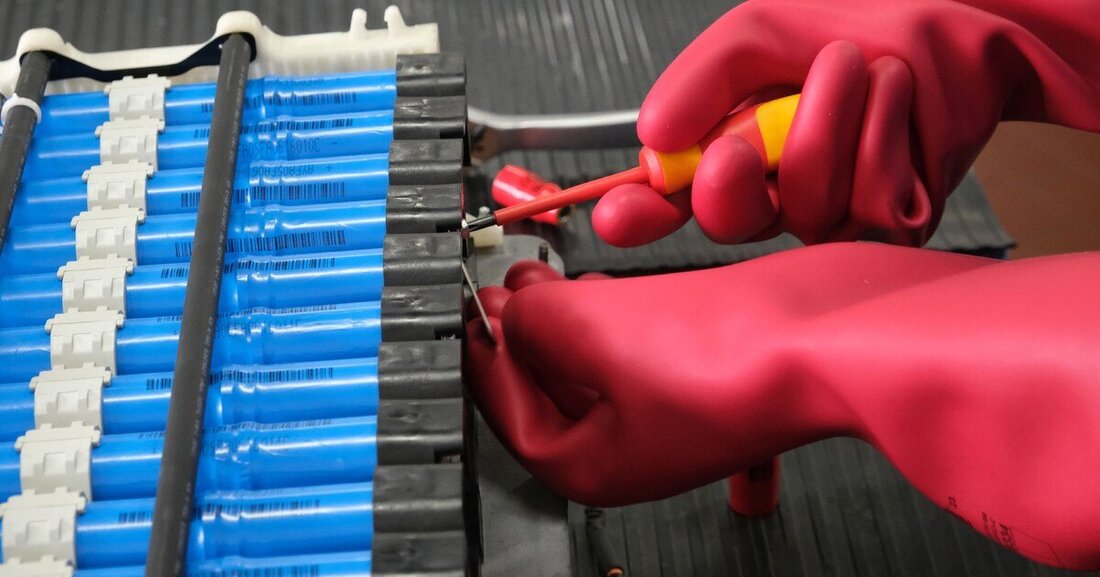Electric cars? Not with me!
According to a study by spare parts producer Meyle, one in five workshops ignores e-mobility in their planning.

Electric cars? Not with me!
Independent workshops attach very different importance to e-mobility. While some are already preparing for the change in the maintenance business towards electric vehicles, others are not even considering the transformation of the automotive industry. This is the result of a representative study that the Hamburg spare parts producer Meyle carried out in cooperation with the market research institute Innofact AG between March and May 2024. A total of 274 independent workshops in Germany, Austria and Switzerland were surveyed about their current and future challenges and opportunities. The study is part of the “Iam:Connect” dialogue platform, with which Meyle will engage more closely with the industry in 2024.
Currently, e-mobility is not yet a business-relevant topic for most independent workshops: only three percent already make more than half of their sales with electric vehicles. This will change fundamentally within the next ten years: slightly less than every second workshop (39 percent) plans to make a large part of its sales with electric cars during this period. This shows that the trend towards e-mobility is happening in the long term and is not happening as quickly as originally forecast. But it is also a fact: the need for services for electric vehicles is there. Customers with electrified drives already regularly visit independent workshops. 40 percent of those surveyed stated that they have electric cars in the yard at least once or several times a week. Tire changes are currently the most common concern (58 percent), followed by general repair work (49 percent) and brake service (38 percent).
A gradual qualification is required for the repair of electric vehicles, which differs between general work, work in a de-energized state and work on live high-voltage systems. The vast majority of workshops are equipped to meet the current demand for primarily general repairs: 78 percent can welcome electric vehicles. However, only a third of these are allowed to carry out this general work; another 25 percent are qualified to service in a de-energized state. Only every fifth workshop is allowed to access the high-voltage system and replace live components. In view of the increasing importance of electric vehicles for sales, there will still be a great need for qualifications in the next few years. The workshops surveyed are aware of this: When it comes to the need for further training programs, 70 percent state that training in the area of e-mobility is most important for the future. One of the insights from the study is that there are many workshops that will continue to focus exclusively on the maintenance of combustion engines in the future: almost one in five workshops (19 percent) plan not to make any sales with electric cars at all.
Digitalization has long since arrived in the independent aftermarket. The integration of the “Internet of Things” (IoT) into vehicles and the use of real-time vehicle data is already determining many new launches by OEMs. Independent workshops therefore have to adapt their range of services. The maintenance and repair of driving assistance systems is rated as having the highest relevance (83 percent) for future workshop business. Three quarters of those surveyed also state that optimizing software to increase workshop performance and repairing or maintaining vehicle infotainment systems will be highly sought-after concerns in the future. Independent workshops also see the issue of sustainability becoming more important to them: they suspect that the environmentally friendly disposal or recycling of car batteries will be the second most important service (77 percent) in the workshop of the future.
Independent workshops need support in order to be able to continue to offer services in the future. They rely primarily on spare parts manufacturers: 64 percent of those surveyed cited them as their most important partners. This is closely followed by software and diagnostic tool providers (58 percent) and wholesalers (52 percent). What they particularly want from spare parts manufacturers is access to diagnostic tools and repair services (65 percent), the provision of specific training and certifications (65 percent) and online platforms for technical support (60 percent). In addition to training on electric and hybrid vehicles, workshops (70 percent) want training on how to use artificial intelligence (60 percent) and training on new service and communication technologies (58 percent). "We need exactly such insights in order to know the challenges and pain points of the workshops in order to be able to align our offering accordingly. The results show that independent workshops need solutions beyond the usual parts production in order to be able to keep pace in the future," says Michael Grimm, Innovation Manager at Meyle AG.

 Suche
Suche
 Mein Konto
Mein Konto